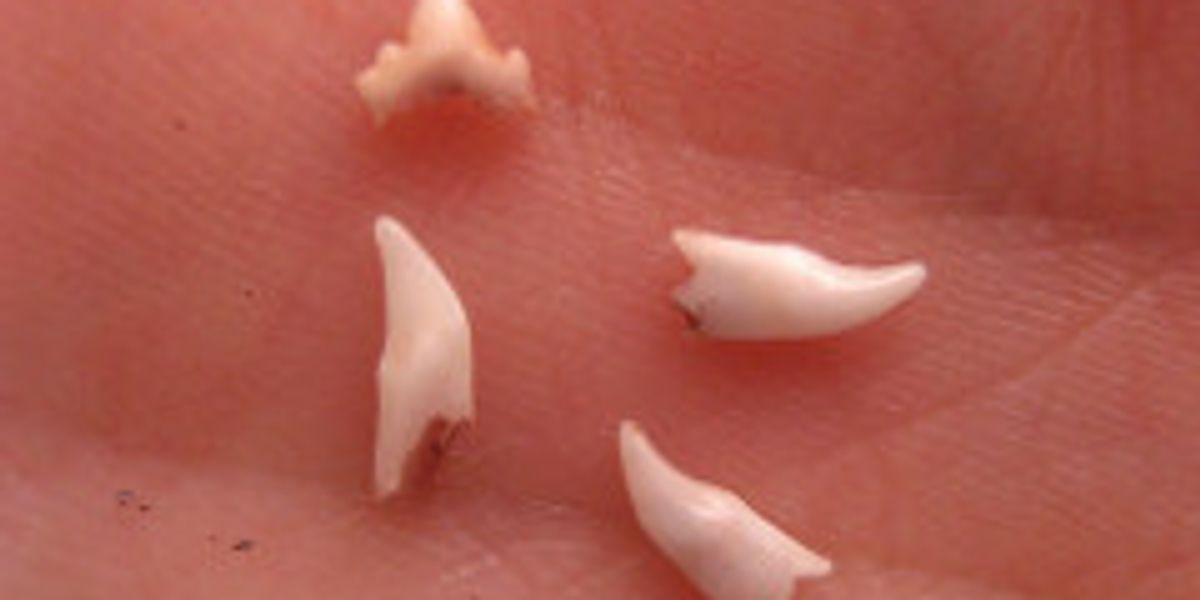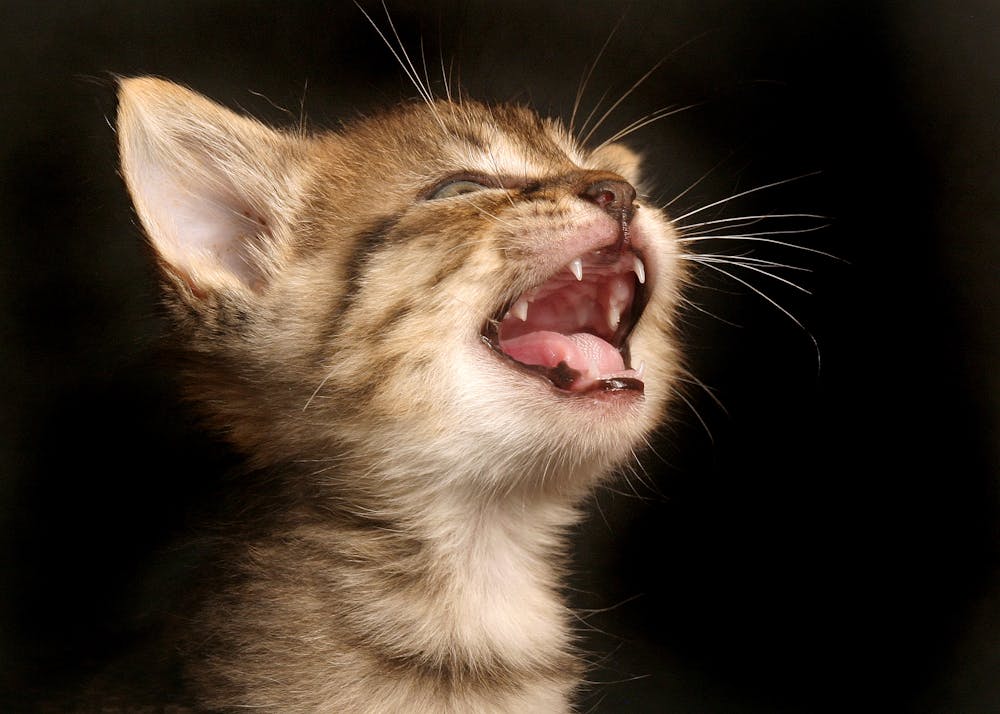
Senior cats lose their teeth due to dental disease which is one of the most common feline afflictions. In adult cats dental disease can start to escalate and tooth loss can occur in cats suffering from severe dental issues.

Kitten deciduous teeth and adult permanent teeth.
Why do cats lose their back teeth. It is not uncommon for a cat to lose 1 or 2 permanent teeth during their adult life. However tooth loss for adult cats in general is a sign of imbalance in their body. Many pet owners neglect the oral hygiene of their cats.
This can lead to the accumulation of tartar and can make it difficult to tell whether they have lost a tooth. Is It Normal for Adult Cats to Lose Teeth. Its not normal for adult cats to lose any teeth.
In adult cats dental disease can start to escalate and tooth loss can occur in cats suffering from severe dental issues. Dental Disease and Tooth Loss in Adult Cats. While cats do not develop cavities like humans do this does not make them exempt from dental disease and.
Why is Your Cat Losing Teeth. If your cat is losing teeth there are likely three main causes. Disease injury or diet.
Periodontal disease or gum disease is. If your adult cat loses a tooth periodontal or gum disease could be the cause. This occurs when plaque builds up along the gum line separating the teeth from the gums and causing the teeth to loosen and fall out.
Causes of Tooth Dislocation or Sudden Loss in Cats. Tooth dislocation or sudden loss of a tooth is not a common occurrence for felines. Rough play biting down on a hard object cat fights falls and hit-by-car incidences can all result in tooth damage although it takes a fair amount of force to cause this problem.
If Johnny is out of his baby stage he may be losing teeth due to periodontal disease. This condition causes layers of plaque to build up on his teeth allowing bacteria to grow. His gums become red and swollen and may even bleed.
As his gums soften his teeth may fall out or become so loose they need to be extracted by a veterinarian. Tooth resorption is the most common cause of tooth loss in cats and between 30 and 70 of cats show some sign of this destructive process. The cause of tooth resorption is not known.
Tooth resorption in cats is usually first identified as a pinkish defect in the tooth at the line where the tooth meets the gums. There are two main culprits for tooth loss. Assuming your cat didnt sustain a dental injury if hes losing teeth its probably because of what hes eating.
Unlike dogs or humans cats dont have true grinding surfaces on their teeth. Their natural diet consists of meat not dry food or canned. Senior cats lose their teeth due to dental disease which is one of the most common feline afflictions.
According to the Cornell Feline Health Center approximately 50-90 of cats older than 4 have dental disease. Most of these issues are preventable with the right care. Most cats will lose one or more teeth during their lifespan due to periodontal disease or tooth resorption.
Gingivostomatitis may also be present. This is an oral condition in which the immune system has an overzealous response to plaque on the teeth leading to severe and debilitating oral pain. Animals generally do fine with missing teeth.
However teeth that fall out on their own usually do so because of uncontrolled dental disease. Infected teeth become loose and fall out as bacteria. A cat loses teeth in two cases.
In childhood when the milk teeth change to permanent ones and at an older age. When the cat is 10-12 years old the teeth begin to fall out due to old age. In other cases tooth loss is often due to oral disease or other problems in the pets body.
Your cat may have lost a tooth or more than one tooth for any of the following reasons. Your cat can experience an injury that has led to his tooth becoming loose and falling out. Trauma from a fall or vehicular collision are two ways that a feline can incur serious injury that may involve tooth loss.
As cats age increases their teeth will wear down and lose their points appearing quite dull. At the age of 1 to 2 years your cats teeth should be undamaged or perhaps just a bit dull. Some worn places on the tops can be observed between 3 and 5 years of age.
Take the act of grinding teeth for instance. Totally fine and typically nothing serious at all when humans do it but if your cats no longer a kitten whos teething teeth grinding in cats may be a sign of dental issues or other quite large health related issues and thus should be looked into with a quick visit to the vet. Slight bleeding of the gums.
During this phase your kitty may also start pawing at their mouth. If you notice an infection it may be due to a condition called persistent deciduous teeth explain the experts at the Tufts catnip meaning that some of. This article will guide you through all aspects of feline teeth from teething in kittens to dental care and diseases of the teeth.
Do kittens lose their baby teeth. Just like humans cats have two sets of teeth. Kitten deciduous teeth and adult permanent teeth.
Kittens teeth begin to fall out around three months of age. Senior cats start to lose their teeth with age. It is a mistake to believe this means you can let nature take its course.
When cats lose teeth it is often a result of gum disease. This could spread to elsewhere in your cats body. Look into cleaning the remaining teeth.
Can cats re-grow their teeth. Do their teeth keep growing their entire lives. Sharks are probably the animal youre thinking of.
After a cat gets all 30 permanent teeth in place thats it. Lose one and your cat is forever down to 29. Unlike rodents a cats teeth dont keep on growing.
Most commonly cats will scratch their clawsnails not only to keep them from growing too long but also to shed old claw sheaths - which is completely normal. Cats claws can also get dried out - much like human hands during winter when they get dry and need hand lotion. When your cat tries to vocalize but their meow absent they have lost their voice.
There are many medical reasons this can happen. It is also not uncommon for your cat to lose their meow after meowing too much eg. When a female is howling when in season.
Cats use their teeth to kill their prey and without teeth a feral cat could lose a significant source of food. Because toothless ferals rely on their caregivers for food a secure long-term solution needs to be worked out for them to make sure they keep receiving care for their entire lives.